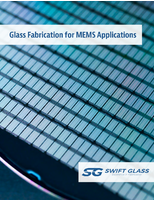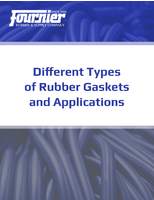Software provides noise and vibration testing.
Share:
Press Release Summary:
LMS Test.Lab Revision 4 includes solutions for rotating machinery, structural and acoustic testing, environmental testing, vibration control, reporting and data sharing. Modal Analysis workbook guides user from capturing of test data, through calculation of modal parameters, to validation of analysis. Through integration of data acquisition and analysis functions, users can see modal results while collecting data.
Original Press Release:
LMS Announces the Launch of LMS Test.Lab Revision 4
New release extends modal analysis capabilities, and increases the performance of LMS.Test.Lab
Leuven, Belgium and Traverse City, MI - May 6, 2002 - LMS International announced the introduction of Revision 4 of LMS Test.Lab at the 2003 edition of the SAE Noise & Vibration Conference & Exhibition in Traverse City (MI, USA). LMS Test.Lab is an integrated software suite for Noise & Vibration Testing and Engineering. LMS Test.Lab offers a complete portfolio, including solutions for rotating machinery, structural and acoustic testing, environmental testing, vibration control, reporting and data sharing. With Rev 4, LMS Test.Lab now covers the complete modal analysis process, from data acquisition, over modal analysis, up to the validation of virtual models. Efficient and automated workflows, a tight integration between data acquisition and analysis, and the high-speed processing capabilities of Test.Lab make it possible for engineers to finish their testing jobs in ever shorter time frames.
"In today's ever-shorter development cycles, fewer physical prototypes are available, for shorter time periods. As a consequence, rapidly executed tests must deliver bottom-level insights you can count on to effectively identify the root causes of noise and vibration issues," commented Filip Pintelon, Corporate Vice-President and General Manager of the LMS Test Division, "LMS.Lab Rev 4 delivers a direct response to these challenges. It offers an integrated and scalable suite of applications noise and vibration testing, which speed up the preparation of test setups and the execution of test programs. The new LMS Test.Lab Structures' modal analysis capabilities deliver conclusive engineering insights in the root causes of specific noise and vibration problems."
With Rev 4, LMS has brought its industry-leading modal technology to the occasional user without diluting the power available to the expert. The once-arcane process of modal analysis has been translated into a logical sequence of experience-proven steps, each embedded in a dedicated worksheet. The LMS Test.Lab Modal Analysis workbook guides the user form the capturing of test data, through calculation of modal parameters, to the validation of the analysis. Through the integration of data acquisition and analysis functions, users can see modal results while collecting the data. This can immediately reveal a missing measurement, and show if and where additional measurement points are required.
Rev 4 of LMS Test.Lab General Processing & Acquisition brings a complete new solution for Throughput processing. The Data Collection worksheet of the basic workbook is not only a powerful tool for preparing data sets for throughput processing, but it is the perfect tool for validation of these data. Thanks to its brand new Stripchart Display, and a quick sliding FFT possibility, it makes checking out throughput data sets easier and faster than ever before. Parallel throughput in spectral acquisition is now also available for Free Run and Triggered acquisition modes. With Tracked Processing, throughput data can be processed according to any preferred specifications.
In addition to the new functionalities of the Structures and the General Processing & Acquisition modules, LMS Test.Lab's Rev 4 offers new features and extended functionalities across all covered applications to further reduce the required testing time and optimize operator efficiency. Acquisition as well as analysis methodologies are gradually enhanced to further cut down the throughput time. As a result, more channels can be handled in one test and a larger group of these channels can be processed in real time.
About LMS International
LMS enables customers to engineer functional performance targets into their products, creating and maintaining distinctive brand values. LMS' unmatched understanding of the product development process is captured through a unique combination of products and services supporting physical and virtual product development: Test systems, CAE software products and engineering services. Critical attributes such as noise and vibration, ride, handling, motion, acoustics and fatigue are turned from problems to competitive advantage. LMS, a Dassault Systèmes Gold Partner, is a global company with the vision, resources and commitment to significantly impact product development performance of its customers.
LMS Contact Information:
Europe:
Bruno Massa
LMS International
Tel +32 16 384 200
bruno.massa@lms.be
United States:
Sarah Zajas
LMS North America
Tel 248 952 5664
sarah.zajas@lmsna.com




